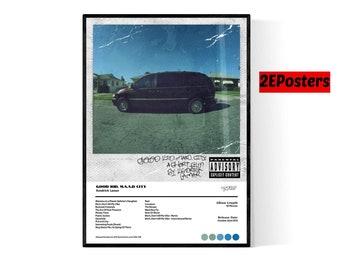

It's a pipsqueak's first pass at a chest-puff. Framed this way, his "damn, I got bitches" chant gets turned inside out: This isn't an alpha male's boast.

But on the album, it marks the moment in the narrative when young Kendrick's character first begins rapping, egged on by a friend who plugs in a beat CD. For example, when "Backseat Freestyle" leaked last week, its uncharacteristic subject matter ("All my life I want money and power/ Respect my mind or die from lead shower") took some fans by surprise. But the miracle of this album is how it ties straightforward rap thrills- dazzling lyrical virtuosity, slick quotables, pulverizing beats, star turns from guest rappers- directly to its narrative. In this album's world, family and faith are not abstract concepts: They are the fraying tethers holding Lamar back from the chasm of gang violence that threatens to consume him.Īll this weighty material might make good kid, m.A.A.d city sound like a bit of a drag. These voicemails appear through the record, reinforcing that good kid, m.A.A.d city is partly a love letter to the grounding power of family.

The song is interrupted by the first of several voice mail recordings that delineate the album's structure: Kendrick's mother, rambling into his phone and pleading for him to return her car. As his voice darts and halts in a rhythm that mimics his over-eager commute, Lamar explores the furtiveness of young lust: "It's deep-rooted, the music of being young and dumb," he raps. It opens on a 17-year-old Kendrick "with nothing but pussy stuck on my mental," driving his mother's van to see a girl named Sherane. Lamar has subtitled the record "A Short Film by Kendrick Lamar", and the comparison rings true: You could take the album's outline and build a set for a three-act play.


 0 kommentar(er)
0 kommentar(er)
